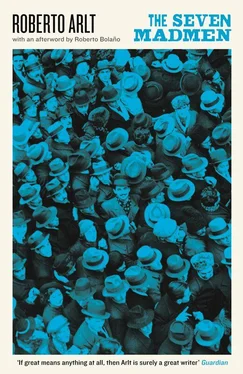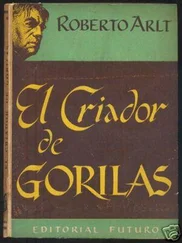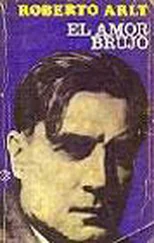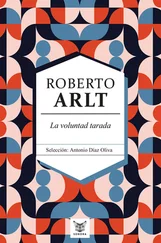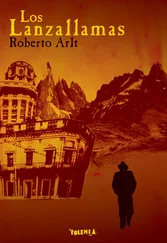Although he could not explain why, Erdosain felt repelled by even the most respectable of these chisellers: the whole tribe was as vicious and ruthless as a band of Moorish pirates.
As he walked past upholsterers, general stores and dressmakers’ shops, Erdosain was thinking that these people were without any noble aim, that they spent their whole time spying with malicious glee on their neighbours’ private lives — neighbours who were as worthless as them, gloating with expressions of fake compassion at all the misfortunes that befell them, spreading tittle-tattle on all sides out of sheer boredom. This suddenly made him feel so angry he realised it would be best if he got off the street before he became involved in an incident with one of these brutes, whose revolting image was for him a symbol of the soul of the entire city, every bit as mean-spirited, remorseless and vicious as them.
He had no firm idea in mind, though he knew he was tainted with disgust for life, but all at once he saw a tram heading for Plaza Once, so he ran and jumped on the back platform. At the station he bought a return to Ramos Mejía. It made little difference to him where he was going. He was weary, at a loss, convinced he had thrown his soul into a ditch from where he would never recover it. And with the Cripple at home waiting for him. How much better to be the captain of a ship, to command some super-dreadnought! The funnels would be belching out plumes of smoke, while on the bridge he would be talking with the first officer, the image of a woman — perhaps not his wife — tattooed on his heart. Why on earth was his life like this? And other people’s lives too, they were “like this”, as if the “like this” were a seal guaranteeing unhappiness, which we simply found harder to spot in others.
What had become of the power of life, which some men seem to have coursing through their veins like the blood of a lion? A power which makes someone’s existence suddenly stand out before us without any rehearsal, as clearly defined as a film plot. Wasn’t that what photos of great men showed? Who had any record of Lenin arguing in a miserable room in London, or of Mussolini wandering the roads of Italy? And yet there they suddenly were, on a balcony haranguing the hirsute crowds, or striding among the shattered columns of a recent ruin, in sports shoes and a straw boater which failed to conceal their fierce conqueror’s features. By contrast, Erdosain’s life was filled with tiny images of the Cripple, the Captain, his wife, Barsut: all of them people who as soon as they were out of his sight were reduced to the minuscule dimensions that distance confers on physical objects.
He rested his head against the glass window. The carriage started to move off, then came to a halt; the guard’s whistle sounded a second time and the whole train pulled out, clanking as it crossed the points which screeched as the wheels forced them apart.
The green and red lights of the tunnel dazzled his eyes for an instant, so he shut them again. In the darkness, the train conveyed its quivering hesitancy to the rails, and its mass multiplied by the speed it was travelling at, lent Erdosain’s thoughts a similarly ponderous, relentless impetus.
Clackety-clack went the wheels at the end of each length of rail, and gradually this dull, insistent rhythm soothed his anger and lifted his spirits, while the speed of the train lulled his body into a state of somnolence.
He began to think about Ergueta’s madness. He remembered the other man’s words when he himself had been staring ruin in the face: “get lost, you bum, get lost”. He settled his head on the padded seatback and recalled earlier days. He closed his eyes to focus better on the images in his memory. These were a puzzle to him at first: this was the first time he realised that whereas some figures in the mind’s eye are the same size as we have known them in reality, other people and things are tiny, like lead soldiers, and only appear in silhouette, without any depth to them. So, next to a huge black man whose hand had strayed to a young boy’s rear, he saw a tiny table like something out of a doll’s house, on which drooped the minute heads of a gang of hoodlums, although the ceiling above them was at its proper height, all of which only served to make the grey outlines of his recollection even more desolate.
An obscure crowd milled about inside his mind; then a shadow covered his anguish like a cloud of weariness, and next to the table where the tiny adult criminals lay sleeping, he could make out the huge looming shape — like an ox’s skull — of the bar owner, digging his fingers into bulging arm muscles.
Another flash of memory showed Erdosain how true his sense of imminent downfall had been, before he had even begun to think of swindling the Sugar Company, but was already searching in dark corners for a possible reflection of his personality.
How many pathways there were in his brain! He pursued the one which took him back to the enormous bar which sunk its morose block into the deepest recesses of his mind, and although this block piercing the length of his skull sloped at an angle of twenty degrees, the tiny tables where the criminals sprawled asleep did not — as would have been logical — slide down, but thanks to the way his mind was accustomed to immediately adjusting the perspective, straightened up beneath them. Erdosain’s body too had grown used to the hurtling mass of the underground train, so he lolled back in his seat in a kind of dizzy stupor, and now that memory had overcome every ounce of resistance in him, he was flooded by the clear, precise outlines of the bar.
These outlines seemed to project themselves directly into his chest, so that he could almost imagine that if he looked at himself in a mirror, the front of his body would show the interior of a narrow room, stretching out towards the mirror. And so Erdosain found himself walking along inside himself on a floor covered with spit and sawdust, the image perfectly framed in a way that reflected on to an infinite repetition of the same sensations.
And he thought that if the Cripple had been with him, he would have said of this recollection:
“That was before I was a thief.”
Erdosain imagined the Cripple turning to look at him while he continued in an off-hand way: “Next to the old Crítica building in Sarmiento there used to be a bar.”
Then, as his train clattered across the junction at Caballito, he imagined Hipólita raising her eyes to him inquisitively. Erdosain saw himself as a character who had lived outside the law but had now gone straight, so he added to his invisible companion:
“The regulars there were a mix of newspaper vendors and criminals.”
“Is that so?”
To avoid the windows being smashed in one of the many fights these unsavoury characters got into, the bar owner kept the metal shutters permanently down. The only light reaching the saloon came in through the blue-tinted panes of the door, so that this den with its grey walls like an Arab butcher’s shop was perpetually sunk in a gloom relieved only by the milky gleam of cigarette smoke.
In that dimly lit cavern, with its heavy-beamed ceiling and filled with steam from vegetable stews and cooking fat, seethed a dark throng of the criminal fraternity, men with caps pulled down over their faces, and kerchiefs casually knotted at the neck of undershirts.
Between eleven and two in the afternoon they crowded round the greasy marble tables to gulp down rotten clams or play cards over a few glasses of wine.
Faces amid the foul-smelling gloom confirmed the lowlife atmosphere. Some were long and drawn-out, as if their owners were being strangled, their mouths gaping open, their lips swollen and floppy as sausages. Black men with porcelain eyes and gleaming white teeth between thick blubbery lips were touching up youngsters, grinding their jaws with pleasure; petty crooks and informers who looked like tigers, with sloping foreheads and unwavering gazes.
Читать дальше
